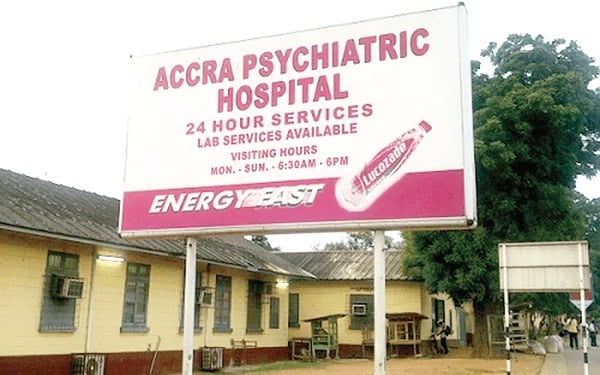Accra Psychiatric Hospital: A Century of Service and Ongoing Challenges
Accra Psychiatric Hospital stands as a cornerstone of Ghana’s mental healthcare system. Established in 1906 during the British colonial era as the Lunatic Asylum, it has evolved over the decades, witnessing transformations in its structure, capacity, and treatment approaches. Post-independence, the hospital became a pivotal institution under the Ministry of Health, providing specialized care and training for mental health professionals. Its legacy is intertwined with the development of mental health services in Ghana, marking a long journey from its colonial origins to its present-day role. Despite facing numerous obstacles, the hospital has remained a vital resource for mental healthcare across southern Ghana.
The hospital offers comprehensive mental health services, catering to both inpatient and outpatient needs. Its scope encompasses a wide range of conditions, including schizophrenia, bipolar disorder, depression, and substance abuse. Emergency psychiatric care and counseling services are also provided, striving to address the diverse spectrum of mental health needs within its catchment area. Despite its comprehensive service offering, the hospital has historically grappled with challenges such as overcrowding, limited staff, and resource constraints. These challenges underscore the complex interplay of increasing demand for mental healthcare and the limitations imposed by resource availability.
Over the years, the Accra Psychiatric Hospital has faced recurring obstacles, notably overcrowding and underfunding, which place significant strain on its infrastructure and workforce. The pervasive cultural stigma associated with mental illness further compounds the situation by hindering public support and funding. Infrastructure decay also poses a substantial challenge, with sections of the facility suffering from inadequate maintenance and subpar living conditions. These challenges highlight the urgent need for sustained investment and comprehensive reforms to ensure the hospital can effectively fulfill its mission of providing quality mental healthcare.
Recognizing these challenges, the Ghanaian government and mental health advocates have actively pursued reforms and called for increased investment in the mental healthcare sector. The passage of the Mental Health Act 2012 (Act 846) represents a significant milestone in this endeavor, aiming to decentralize mental healthcare and enhance conditions in psychiatric institutions. The Act underscores a broader shift towards a more inclusive and community-based approach to mental healthcare. Furthermore, international organizations, including the World Health Organization (WHO) and Basic Needs Ghana, have provided valuable support for mental health initiatives involving the hospital, adding to the momentum for positive change.
The hospital has also become a platform for raising awareness and educating the public about mental health. Dr. Ijaz Mohammed Zaman, a Resident in Psychiatry at the hospital, has shed light on the nature of bipolar disorder, a prevalent diagnosis at the facility. He explains the characteristic alternating episodes of mania and depression, emphasizing that these are not mere mood swings but distinct medical conditions requiring specialized care. Dr. Zaman’s insights, particularly his emphasis on distinguishing general restlessness from clinical symptoms, are crucial for early diagnosis and effective treatment. His advocacy for greater education, empathy, and reduced stigma reflects a wider call for a more understanding and supportive societal approach to mental health.
Furthermore, Hillary Selassi Nutakor, a Senior Nursing Officer and Addiction Practitioner at the hospital, champions community involvement in mental health recovery. Highlighting the hospital’s Serenity Place, a specialized recovery unit, Mr. Nutakor stresses the importance of holistic care, encompassing detoxification, rehabilitation, reintegration, and ongoing support. His emphasis on the damaging effects of societal stigma and the need for ongoing support, even in the face of relapse, underscores the importance of a compassionate and understanding community response. Mr. Nutakor’s call to action urges families, communities, and institutions to create a supportive environment where individuals feel safe to seek help and rebuild their lives, emphasizing the collective responsibility for fostering mental wellness. The combined efforts of healthcare professionals, advocates, and community members are essential for creating a supportive environment for those navigating the challenges of mental illness.














